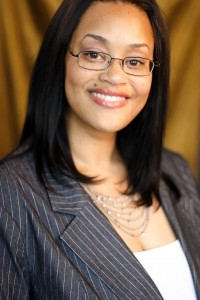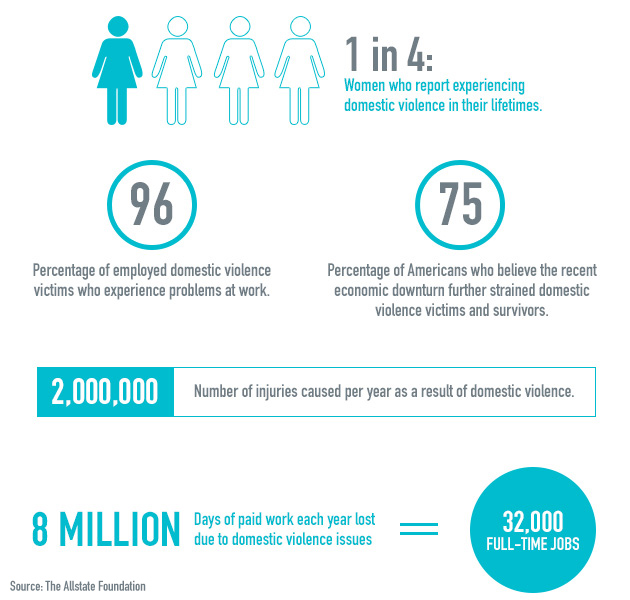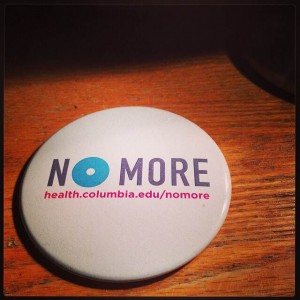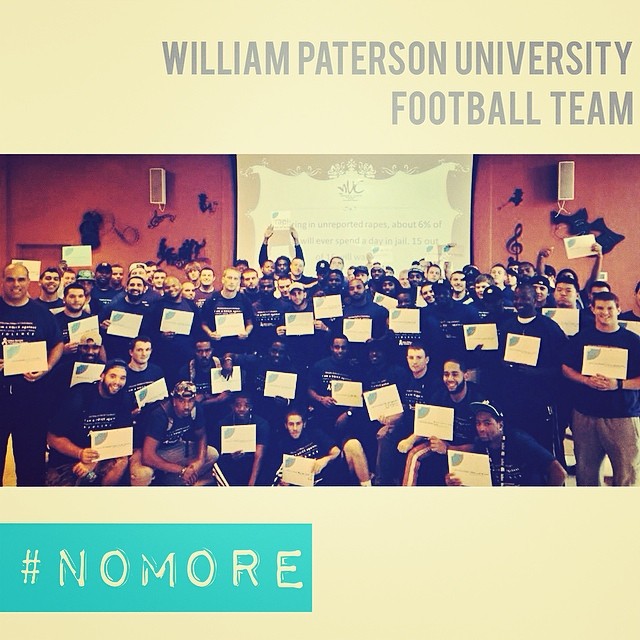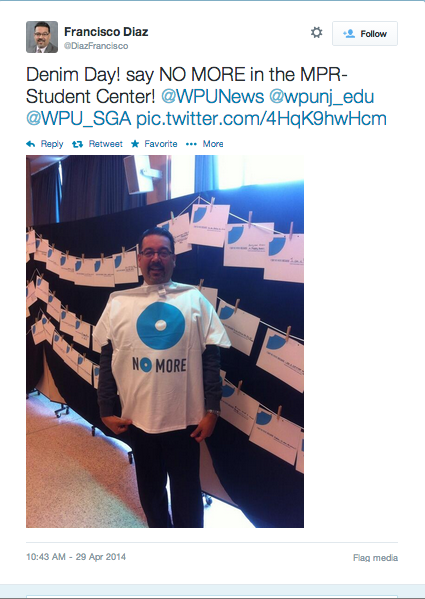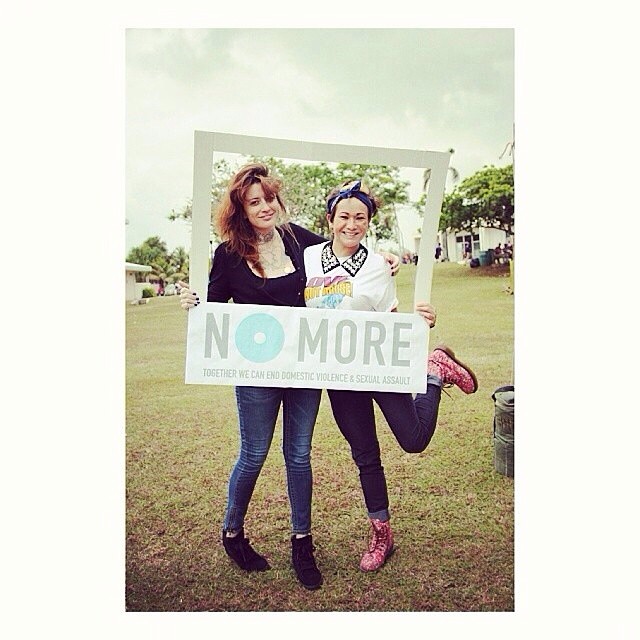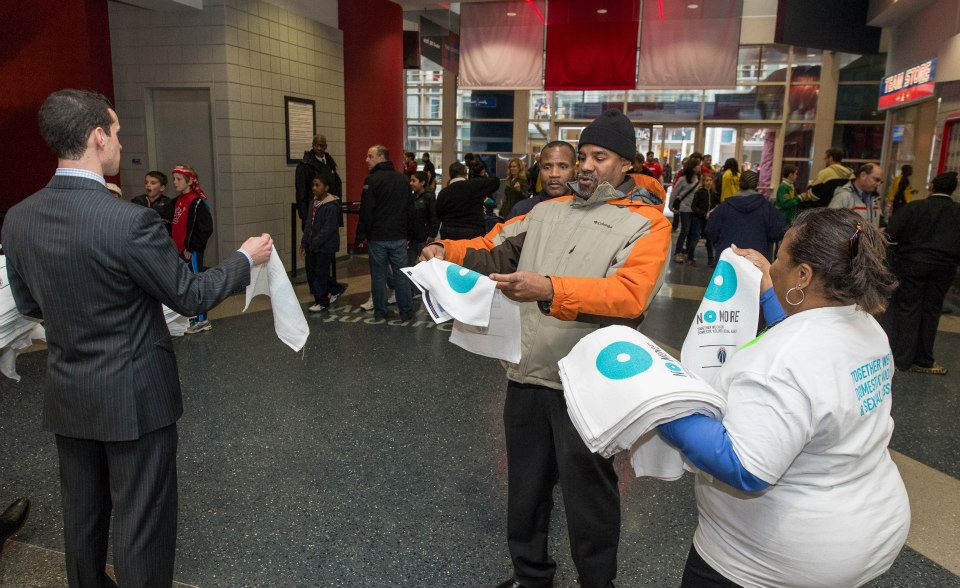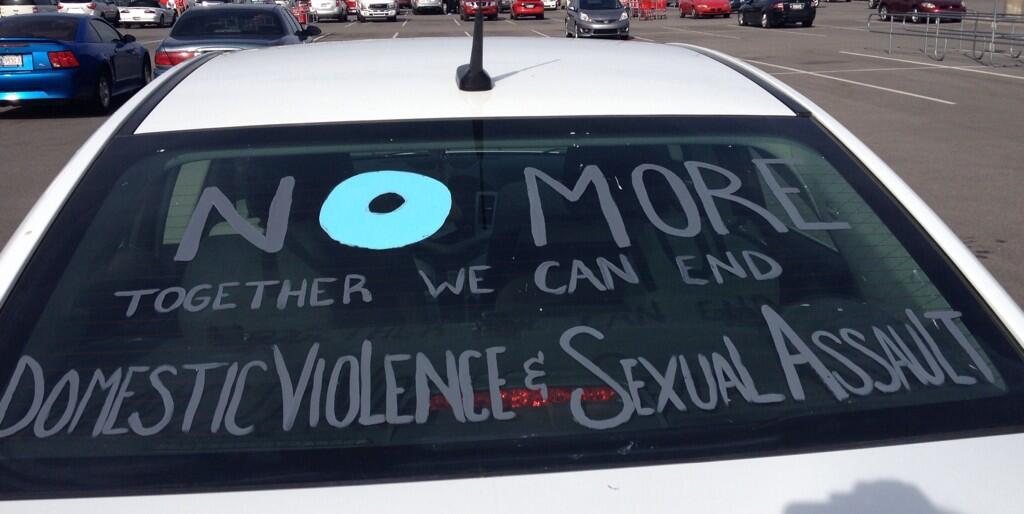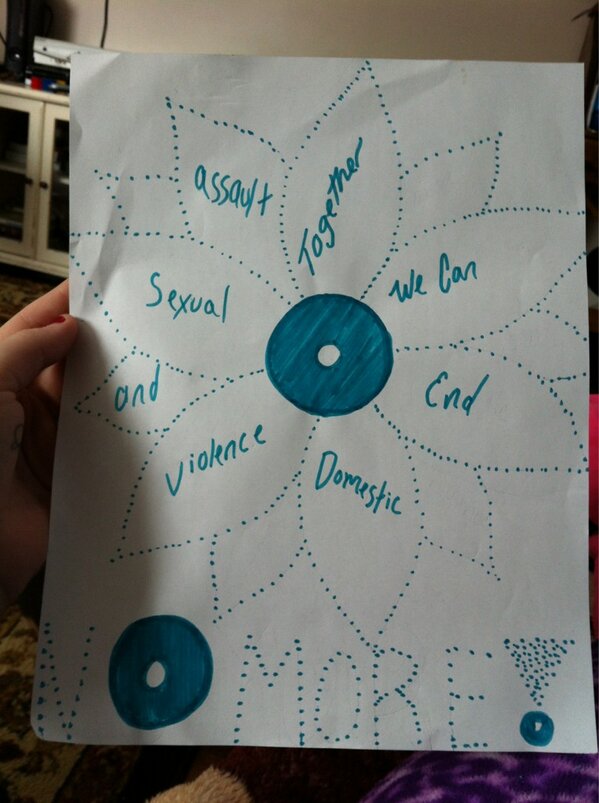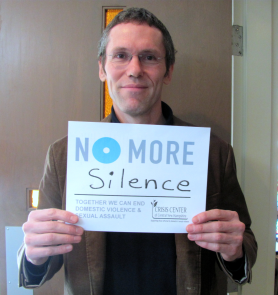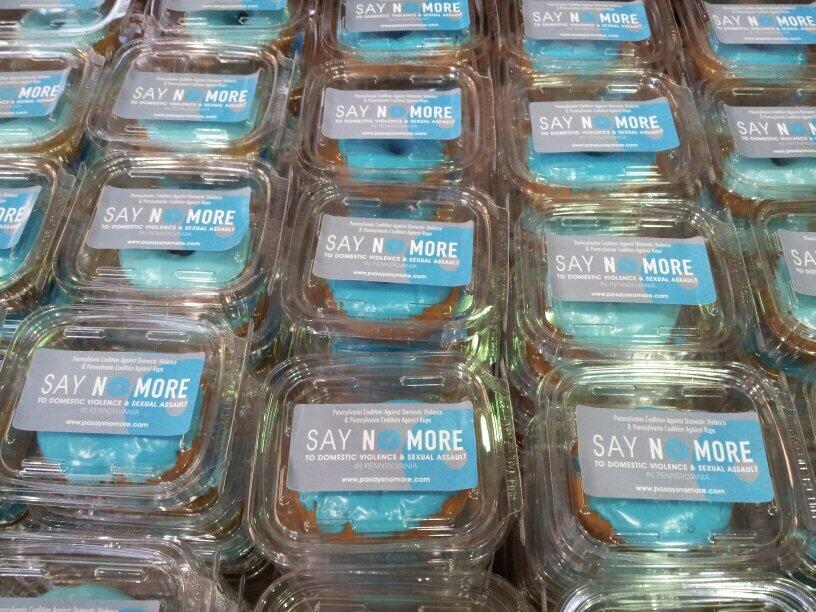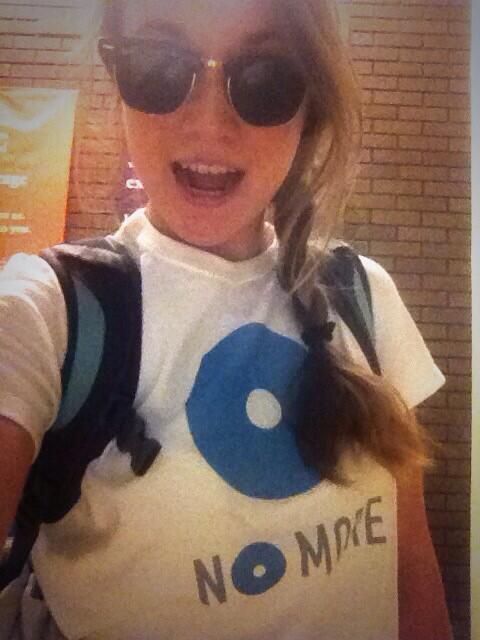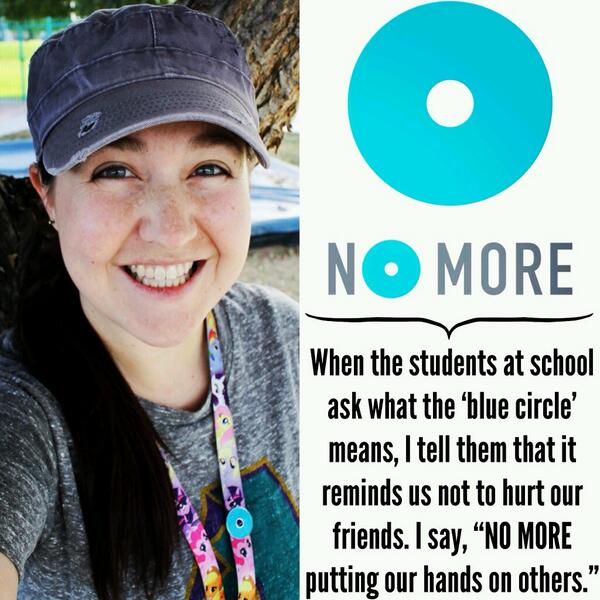We love hearing about NO MORE on campus—and sometimes a story sticks out so much that we absolutely have to share.
Simona Gerdts launched a NO MORE campaign at the University of Alaska – Anchorage with a classmate for a senior project. It earned raves from faculty, students, and even Alaska Governor Sean Parnell, who wrote her a letter.
For Simona, the project was personal.
As a little girl in Florida, she grew up with an abusive dad. Her mother left him when Simona was five.
At 15, Simona got pregnant. “I confided in a Methodist pastor,” she says. “His exact words were: ‘This is to be expected when you grow up in a home without a dad.’”
Simona had the baby, Brendan, with her boyfriend, Alan. The couple graduated from high school a year early, got married, and Alan enlisted in the Air Force. Their second son, Aydan, was born four years later. Simona traveled across the country with him; now the family lives in Anchorage, Alaska where her husband is assigned to Joint Base Elmendorf Richardson (JBER).
When Aydan turned five, she enrolled at UAA. Originally planning on a paralegal certificate program, Simona started to gain confidence—thanks to encouragement from faculty at the UAA Justice Center—and she decided to pursue a BA in justice with a minor in legal studies.
Now she’s 29. This month, she became the first woman in her family to earn a bachelor’s degree. She finished in three years, graduated magna cum laude, and served as president of Alpha Phi Sigma, the National Criminal Justice Honor Society.
Brendan is 13, Aydan is 8, and her high school sweetheart is now her husband of 11 years. Her father recently died of lung cancer and reached out to her before passing away.
As for her mom? We’ll let Simona tell you the rest.
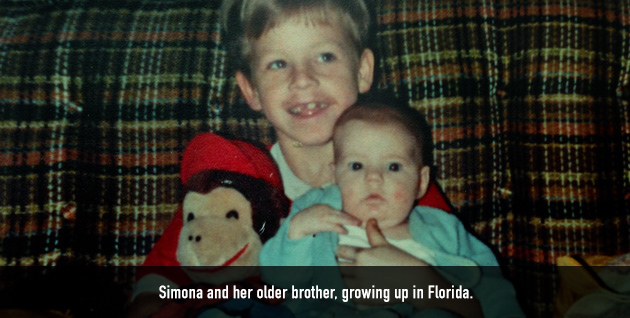
Because I’m so active in domestic violence issues, people often ask me why.
Have you ever been so terrified that although the world around you is filled with noise, the silence that fills your mind is deafening?
Have you ever been so terrified that although the car you’re riding in is filled with the sounds of your mother’s head being slammed into the window and her pleas begging your father to stop, you hear nothing?
Some wounds go beyond the surface.
Any parent whose child has fallen down and gotten up with a look on their face as if they’re crying, but without any actual sounds, knows that this ‘silent cry’ is usually followed by an ear-piercing scream, as soon as the child is able to catch their breath. But what happens to the wounds in a small child’s mind that are caused by watching domestic abuse unfold from the back seat of the car? Or listening to it from a bedroom?
What happens when their world is so terrifying that all they hear is silence?
Those wounds aren’t healed with a Band-Aid and a kiss from mommy. Those wounds are internalized by an innocent child who will bear them for life.
During one assault, I distinctly remember unplugging the phone from the wall so that my mom wouldn’t be able to report my father to the police. On that day, my mom wasn’t able to call for help. This time, she would have to fight back. At some point during the struggle, my mom found an opportunity to leave. She grabbed me by the hand, and we just ran!
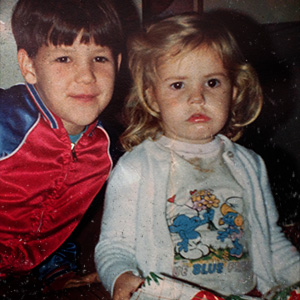 I was five years old.
I was five years old.
As a child, I grew up resenting my mom every year that I had to live in poverty and wear hand-me-down clothes. I resented my mom every time a child at school would make remarks about my appearance. I would convince the bus driver to drop me off in the wrong neighborhood so that no one would see where I actually lived, and I idolized my father from afar.
Now I realize that I resented a beautiful, independent, hard-working, single mother because she chose to say NO MORE to the abuse that she had long suffered at the hands of nearly every male who entered her life. I resented my mother because she chose to end the cycle of domestic abuse, which had plagued the women in her family for generations.
Two weeks ago, the monster that I used to idolize was nearing the end of his battle with lung cancer. I had the opportunity to offer some parting words. “I am happier in my life than I have ever been before. I wish you comfort and peace,” were the only words I could bring myself to e-mail.
Tonight, as I sit here nearly 48 hours after the monster took his final breath, I am reflecting on my decision not to respond with more frankness. I can state, without hesitation, that I have no regrets.
I’m only just beginning to realize the sacrifices that my mother made by struggling to keep a roof over our heads, and I now know that the only thing that kept her going was the hope that one day her children would have the life that she had always wanted for herself.
Over the past several months, I have often reflected on the lives that my mother created. When I look at my three brothers—all of whom are college-educated, successful, fathers in healthy relationships—there is absolutely no doubt in my mind that the greatest contributing factor to our success is the courage of our mother.
To this day, my mom apologizes that she wasn’t able to provide a good life for my brothers and me, to which I would like to reply: There is not one single thing that I would change about the way I grew up. You’ve changed my life, you’ve healed my wounds, and you’ve made me an independent, hard-working mother who knows what real love feels like. You have given me the life that you always wanted for yourself. Most importantly, you broke the cycle of violence in our family, so you have absolutely nothing to apologize for.
On May 4, I earned a bachelor’s degree from the University of Alaska Anchorage. I was the first female in my family to earn a bachelor’s degree—and my mom was there to see me walk across the stage.
According to Futures Without Violence, 15.5 million children live in homes where domestic violence has occurred. Learn more about how you can take a stand against sexual abuse and domestic violence at NO MORE and at the Joyful Heart Foundation.
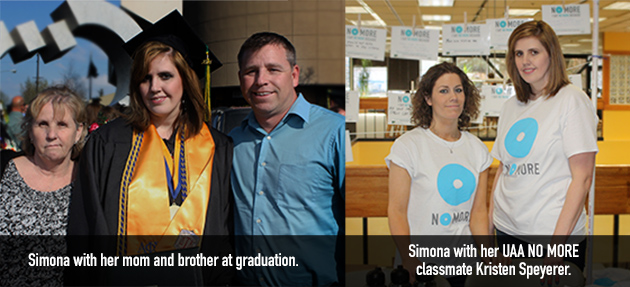
 they feature some major celebrity talent.
they feature some major celebrity talent. Bow Wow and Keshia, co-hosts of BET’s top-rated 106th & Park.
Bow Wow and Keshia, co-hosts of BET’s top-rated 106th & Park.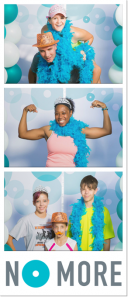
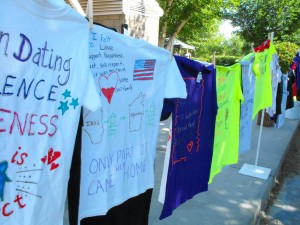 “Sexual assault and domestic violence should be the last things service-people need to worry about,” says Chavez. “But we have a lot of people who sit silent because of the stigma that exists. We wanted to create a supportive environment and let everyone know: NO MORE turning the other way! If you need help, we’re here.”
“Sexual assault and domestic violence should be the last things service-people need to worry about,” says Chavez. “But we have a lot of people who sit silent because of the stigma that exists. We wanted to create a supportive environment and let everyone know: NO MORE turning the other way! If you need help, we’re here.”